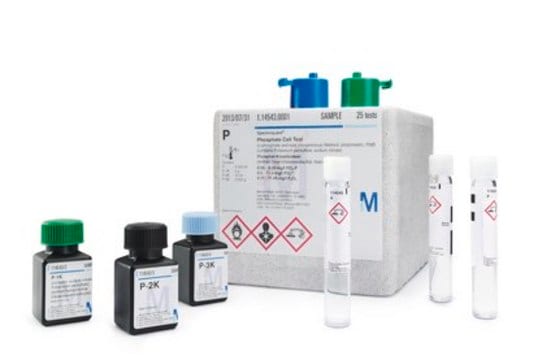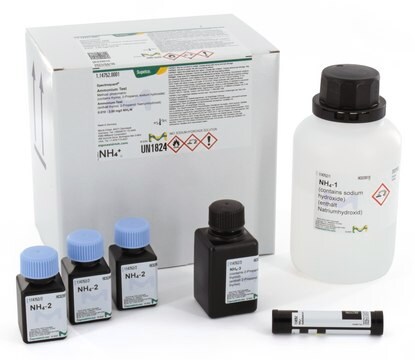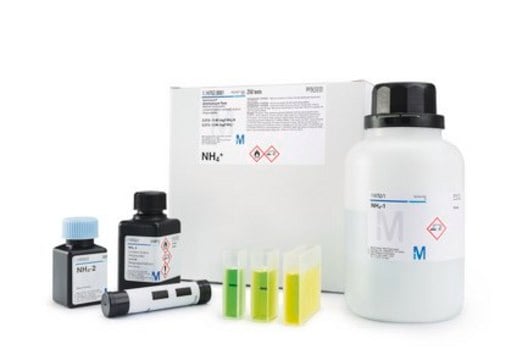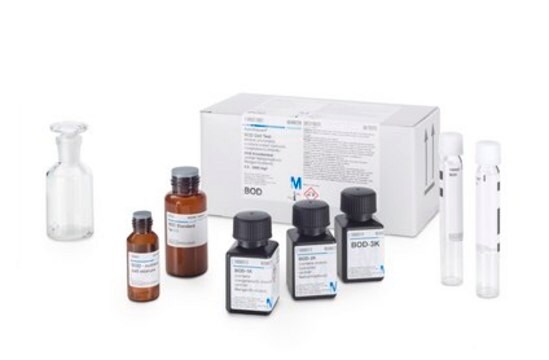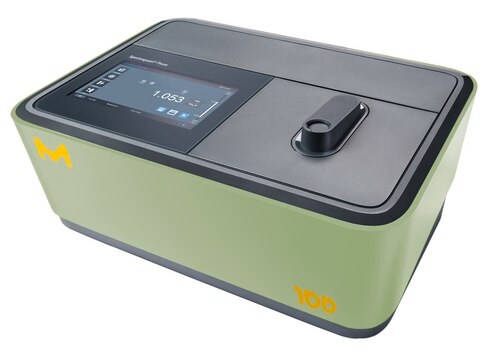1.14839
Boron Test
photometric, 0.050-0.800 mg/L (B), Spectroquant®
About This Item
Recommended Products
product line
Spectroquant®
Quality Level
usage
sufficient for 60 tests
specific analyte(s)
boron
measuring range
0.050-0.800 mg/L (B)
technique(s)
photometry: suitable
compatibility
for use with Spectroquant® Nova 60 A
for use with Spectroquant® Prove 100
for use with Spectroquant® Prove 300
for use with Spectroquant® Prove 600
detection method
photometric (Rosocyanine)
storage temp.
15-25°C
General description
The method is analogous to EPA 212.3, APHA 4500-B B, and ASTM D3082-15.
This Spectroquant® Boron Reagent Test allows the accurate quantification of the boron content in aqueous samples.
Method applied: In acidic solution borate ions react with a diol to form chelates that are selectively extracted. In the extract the chelates react with curcumin to form a red complex which is determined photometrically.
The Spectroquant® Reagent Test Kits contain highly stable, ready-to-use reagent mixtures to perform the analysis according to the procedure described in the accompanying instruction leaflet.
All our Cell and Reagent Test Kits are equipped with the unique Live ID (2D barcode) which allows seamless method recognition and contains essential information such as lot number, expiry date, and automatic calibration updates.
Legal Information
signalword
Danger
Hazard Classifications
Acute Tox. 3 Inhalation - Acute Tox. 4 Dermal - Acute Tox. 4 Oral - Carc. 2 - Eye Dam. 1 - Flam. Liq. 3 - Met. Corr. 1 - Repr. 1B - Skin Corr. 1A - STOT RE 1 Oral - STOT SE 3
target_organs
Central nervous system
Storage Class
3 - Flammable liquids
wgk_germany
WGK 3
Certificates of Analysis (COA)
Search for Certificates of Analysis (COA) by entering the products Lot/Batch Number. Lot and Batch Numbers can be found on a product’s label following the words ‘Lot’ or ‘Batch’.
Already Own This Product?
Find documentation for the products that you have recently purchased in the Document Library.
Our team of scientists has experience in all areas of research including Life Science, Material Science, Chemical Synthesis, Chromatography, Analytical and many others.
Contact Technical Service